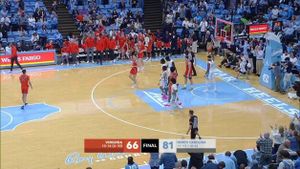Millions of Muslims across the globe are gearing up for the arrival of Ramadan, the holiest month of the Islamic calendar. With its rich traditions rooted deeply within the community, Ramadan 2025 is predicted to commence either on the evening of February 28 or March 1, depending on lunar sightings. This month-long observance is revered for its emphasis on spirituality, reflection, and community service.
Based on calculations from the Space and Upper Atmosphere Research Commission (SUPARCO), the new moon will occur at 5:45 PM Pakistan Standard Time on February 28, 2025. They noted, "The moon’s age will be 12 hours at sunset, making it challenging to observe with the naked eye." This lends credence to estimates for Ramadan's commencement on March 2 for Muslims in Pakistan, with the possibility of those observing the month beginning the day before across the globe.
Ramadan is not just marked by fasting; it is also about prayer, charity, and communal strengthening. Muslims practice one of the five pillars of Islam by abstaining from consuming food, drink, and other physical needs during daylight hours. This fasting practice is seen as both a challenge and as grows believers' patience and connection to their faith.
"Ramadan is meant for 'spiritual reflection' and 'increased devotion and worship,'" shared representatives of the Islamic Society of North America, illustrating how this holy month holds the promise of deepening one’s relationship with Allah. The fast begins with the pre-dawn meal called suhoor and ends daily with iftar, the meal enjoyed at sunset, often breaking the fast with dates and water. During this time, prayer and reading the Qur'an take center stage, with many hoping to read the entire text throughout the month.
Particular importance is placed on Laylat al-Qadr, or the Night of Power, which falls during the last ten days of Ramadan. It is believed to be the night when the first verses of the Qur'an were revealed to the Prophet Muhammad. Worshippers seek this night fervently for special blessings and forgiveness of sins.
During Ramadan, Muslims engage actively with their community through charitable endeavors. Zakat, or obligatory charity, becomes even more significant during this month. This form of giving is viewed as purifying for the giver and is promoted actively within the community. "Charity is considered an action
designed to purify the soul and bring blessings," according to general reporting on the subject.
Eid al-Fitr marks the end of Ramadan and signifies joy and community. Muslims participate together in prayers and enjoy lavish meals, often involving family and communal gatherings. Homes are adorned, and families prepare traditional dishes, heralding the conclusion of the fast. Notably, gifts are exchanged, particularly with children, adding to the celebratory atmosphere.
The multitude of observances during Ramadan is reflected not only across various cultures but also impacts everyday life, including work schedules. UNISON general secretary Christina McAnea highlighted the importance of accommodating Muslim workers during this sacred period. "It’s always important for your union to make you feel supported and valued during this period," McAnea stated, emphasizing the need for flexibility and acknowledgment of faith within workplace dynamics.
With heightened anticipation building within Muslim communities worldwide, significant activities are being prepared, such as late-night prayers (Taraweeh) and communal iftars, where Muslims invite family and friends to break the fast together. This period is also marked by increased activity around halal food sales as families stock up and organize meals.
This upcoming Ramadan presents immense opportunities for introspection, empathy, and community connection for Muslims everywhere. While the exact commencement date might still cause some debate—especially concerning moon visibility—one thing is certain: Ramadan is more than just fasting; it embodies the essence of faith and unity among believers.



